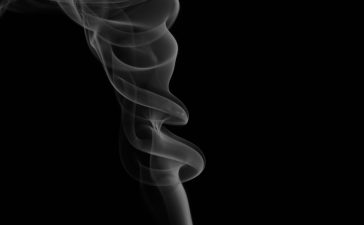When it comes to photography, two names dominate the conversation: Nikon and Canon. As titans in the camera industry, both brands have dedicated followings and extensive lineups that cater to both amateur and professional photographers alike. This article will delve into the strengths and weaknesses of Nikon and Canon to help you determine which brand might suit your needs best.
Brand Overview
Canon
Canon has a storied history in imaging technology, originating in 1937. Known for its pioneering developments in digital cameras, Canon has consistently released high-quality DSLRs and mirrorless cameras, alongside an extensive range of lenses and accessories. Their reputation for user-friendly interfaces and vibrant color reproduction makes their cameras particularly appealing to both novice and seasoned photographers alike.
Nikon
Founded in 1917, Nikon has established itself in the realm of photography with a strong focus on optics and high-quality imaging systems. Nikon cameras are known for their durability, exceptional build quality, and low-light performance, making them a popular choice among wildlife and nature photographers. Nikon also excels in the creation of lenses, maintaining an extensive catalog that appeals to various niches within photography.
Camera Options: DSLRs and Mirrorless Systems
Canon DSLRs
Canon’s DSLR lineup includes models ranging from entry-level to professional-grade options. Famous for their ease of use, Canon’s DSLRs feature intuitive controls, making them perfect for beginners. The Canon EOS Rebel series is particularly well-regarded for amateurs, while professional photographers often turn to the EOS 5D and 1D series.
Nikon DSLRs
Nikon also offers a broad array of DSLRs, including the user-friendly D3500 for amateurs and the pro-oriented D6 for seasoned photographers. Nikon cameras typically provide impressive autofocus systems and higher frame-per-second rates, which appeal to sports and wildlife photographers.
Mirrorless Systems
Both brands have pivoted toward mirrorless technology, recognizing its potential. Canon’s EOS R line is robust and user-friendly, offering features like Dual Pixel autofocus, which has garnered positive reviews for performance. Nikon, on the other hand, is making strides with its Z series, known for superior ergonomics and excellent low-light capabilities, truly showcasing Nikon’s expertise in optics.
Lens Options
When it comes to lenses, both brands have equivalently impressive ecosystems.
Canon Lenses
Canon’s lenses are often praised for their sharpness and color rendition. The availability of a broad range of EF and RF lenses means that photographers can find options suited to various photography styles, from portraits to macro shots.
Nikon Lenses
Nikon, hailed for its optical technology, produces a pleasing selection of Nikkor lenses known for wide apertures and great bokeh. Their Z-mount lenses are also gaining traction, offering cutting-edge features that tempt enthusiasts and professionals.
Image Quality
Both Nikon and Canon cameras deliver remarkable image quality, but there are some distinctions.
-
Color Science: Canon’s color science often produces warmer images straight out of the camera, making skin tones appear more natural, which is beneficial for portrait photography. Nikon’s color reproduction, while slightly cooler, tends to excel in landscape photography, providing lush greens and blues.
-
Low-Light Performance: Nikon cameras are frequently recognized for superior low-light performance, thanks to their larger sensors and excellent noise control. This makes them a favorite amongst wedding and event photographers who often find themselves working in less-than-ideal lighting.
User Experience
Ease of Use
For beginners, Canon tends to provide a more user-friendly experience. Its interfaces are often simpler, and many users appreciate the guided modes available in Canon cameras.
In contrast, Nikon’s systems may be more complex but offer vast customization options for advanced users who want to tailor their camera settings.
Build Quality and Ergonomics
Nikon is typically lauded for its ergonomic designs, especially in larger cameras, allowing for comfortable prolonged use. Canon’s build quality is robust as well, though some users find Nikon’s grip more comfortable on their cameras.
Conclusion: Which Brand Should You Choose?
Ultimately, the choice between Nikon and Canon will depend on your specific needs, preferences, and intended use.
-
Beginners: If you are new to photography, Canon’s user-friendly DSLRs and extensive support resources make it an attractive option.
-
Amateur Enthusiasts: If you plan to dabble in more advanced photography, both brands offer compelling options. Nikon’s lower-light capabilities could serve you well in diverse situations.
-
Professionals: For seasoned photographers, it may boil down to personal preference in handling and specific features. Those who prioritize video capabilities might lean toward Canon, while those requiring superior low-light performance might favor Nikon.
Whichever brand you choose, both Nikon and Canon boast rich histories, innovative technologies, and a host of options designed to fuel your passion for photography. Your path lies in your individual needs, so grab a camera, experiment, and let your creativity shine!






